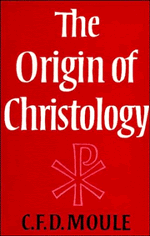Book contents
- Frontmatter
- Contents
- Acknowledgements
- Abbreviations
- Introduction
- 1 Four well-known descriptions of Jesus
- 2 The corporate Christ
- 3 Conceptions of Christ in writers other than Paul
- 4 The scope of the death of Christ
- 5 The fulfilment theme in the New Testament
- 6 Retrospect
- 7 Prospect: the ‘ultimacy’ of Christ
- Excursus: Obeisance (proskunein)
- Index of references
- Index of names
- Frontmatter
- Contents
- Acknowledgements
- Abbreviations
- Introduction
- 1 Four well-known descriptions of Jesus
- 2 The corporate Christ
- 3 Conceptions of Christ in writers other than Paul
- 4 The scope of the death of Christ
- 5 The fulfilment theme in the New Testament
- 6 Retrospect
- 7 Prospect: the ‘ultimacy’ of Christ
- Excursus: Obeisance (proskunein)
- Index of references
- Index of names
Summary
The scope of this book is strictly limited, and so is the equipment of the writer, as no one knows better than he. The inquiry is limited almost entirely to the New Testament documents, and the instruments employed are only those of ordinary New Testament investigation. But if anything that is cogent emerges from the argument, it will have an importance in the wider field of systematic theology, and so, ultimately, in the presentation and application of the Christian gospel. Therefore, although so far ‘behind the lines’, and although deliberately refraining from the discussion of recent work on Christology beyond the New Testament period, I refuse to believe that this activity has nothing to do with matters of contemporary urgency.
Indeed, it is, in a sense, a reply to a contemporary challenge. Apart from the more immediate incentive provided by sundry invitations to lecture, for which I have already expressed my gratitude, the main impetus behind these studies is the conviction, slowly generated over the years, that there are unexamined false assumptions behind a good deal of contemporary New Testament scholarship. Of these, the one I have particularly in mind is the assumption that the genesis of Christology – the coming into existence, that is, of the descriptions and understandings of Jesus which emerge in the course of Christian history – can be explained as a sort of evolutionary process, in the manner of the so-called ‘history of religions school’ of thought (die religionsgeschichtliche Schule).
- Type
- Chapter
- Information
- The Origin of Christology , pp. 1 - 10Publisher: Cambridge University PressPrint publication year: 1977
- 1
- Cited by



